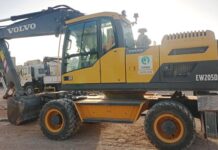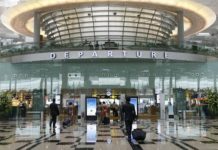More than $150bn worth of major railway, metro and tram projects are under way or planned in the Middle East & North Africa region, according to a report published this month by MEED, the business intelligence and events company.
The figure reflects the momentum gathering in the region’s railway projects market due to rapid urbanisation and the increases in crossborder movements in people and goods.
“More than $25bn-worth of rail contracts are expected to be awarded in 2014, with a similar amount likely in 2015,” according to the author of the report MEED Insight Head Ed James.
“These include packages on the Doha, Jeddah and Abu Dhabi metros, the second phase of the Etihad Rail project, the third phase of Line 3 of the Cairo metro and various tram projects in Algeria.”
Ed James will be delivering a keynote address at the 10th annual MENA Rail & Metro Summit 2014 which opens at the Conrad Hotel in Dubai on 21-22 June.
“The main driver for rail and metro development in the region is the increasing congestion in urban areas and the growing realisation that building more roads is not the solution,” James writes. “At the same time, governments are recognising the economic benefits rail networks can bring, especially to more remote areas. Moreover, for the oil exporters high oil prices have meant they vhave the funds to finance their rail ambitions.”
Figures compiled by MEED show that plans call for the total length of MENA region railway track to be increased by 40,000 kilometres from under 29,000 kilometres at present. The largest railway programme is in Saudi Arabia where the aim is to build 10,000 kilometres of track compared with 2,415km at present in the form of the Riyadh-Dammam lines and the North-South Mineral Railway to Ras al-Khair.
More than one quarter of the new railway track is to be lain in the GCC, including the GCC railway from Kuwait City to Muscat in Oman which is due to start operating in 2018. Plans for the regulation and operation of the railway are now being finalised.



































